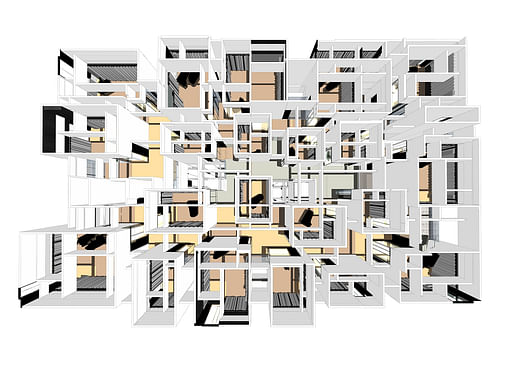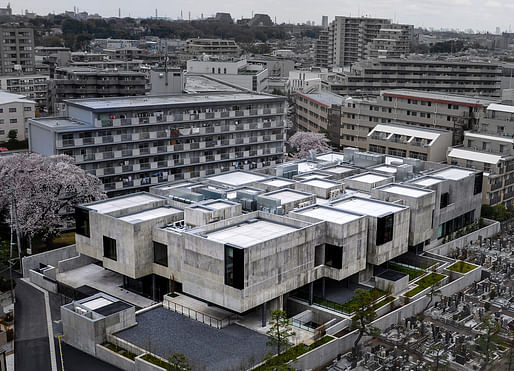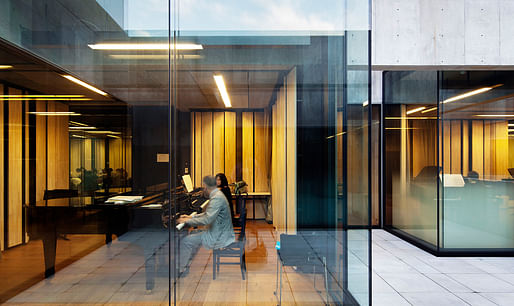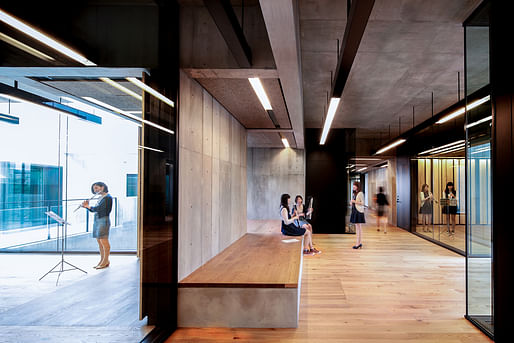
In an orchestra each instrument has its place to shine as well as accompany the rest of the ensemble. Japanese architectural firm Nikken Sekkei takes a building in the suburbs of Chofu, Tokyo, Japan and transforms it into a musical sanctuary. The original structure which housed the music school stuck to a conventional arrangement of practice rooms and interiors. The architects at Nikken Sekkei decided to use the musical needs and specifications of various instruments to design the layout of the space.

The structural layout of the school responds to both the interior and exterior needs of the building. Due to its acoustic demands using concrete as a primary building material seemed like a natural choice. Externally, the broken, geometric, structural façade allows the building to minimize its overall scale while complimenting its urban surrounding. From above, the geometric layout of the entire campus resembles a "Nolli map". The grouping of each form embodies a colony like arrangement allowing for negative voids and positive forms to emerge. From the interior, the broken up facade opens up for small courtyards to fill negative spaces, enabling natural light and ventilation to funnel through.

The detailed plans of the building's structural makeup come down to understanding how to use negative and positive spaces that are created out of its broken up facade. Once inside, the interiority of the space creates a rhythmic atmosphere where indoor and outdoor spaces converge. Each music room is arranged with ample studio space, allowing a separation buffer between each area. The needs for acoustic independence was an important detail that Nikken Sekkei understood from the beginning. Along with floor to ceiling glass windows that allow passerby's to look through each space, the room arrangements create a visual connection between the musicians.

Carefully researched by Nikken Sekkei, the details of each practice room is dictated by the specific scale and room proportions each instrument needs for optimal acoustic performance. Timber cladded walls fill each space allowing for sound to stay within the room. Larger practice areas are found in the basement housing noisier instruments where natural acoustic absorption can take place.

Not skimping on details, Nikken Sekkei's successfully transforms an outdated music school into a structural masterpiece. A front runner for The Royal Institute of British Architects (RIBA) 2018 world's best new building of the year, the project's subtly beautiful aesthetic and response to client needs make it a strong contender.

Hospice - Home for Terminally Ill #4
Register by Wed, Jan 15, 2025
Submit by Mon, Jun 16, 2025

Land Art Generator Initiative 2025 Fiji: Climate Resilience for Island Communities
Register/Submit by Mon, May 5, 2025

Kinderspace: Architecture for Children's Development #2
Register by Thu, Jan 16, 2025
Submit by Mon, Jun 16, 2025

Ceramics of Italy Tile Competition
Register/Submit by Fri, Feb 14, 2025
No Comments